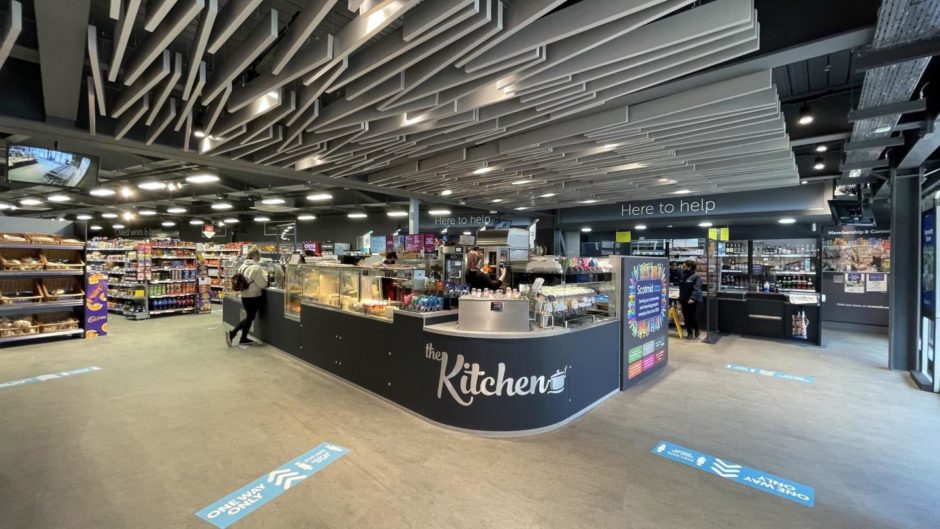Independent co-operative Scotmid has warned some prices in shops could rise as the shop chain faces the impact of inflation and revealed it has struggled with transport costs.
Despite a return to a “new normal” as Covid restrictions unwind, the spectre of soaring inflationary pressure remains, with Scotmid chief executive John Brodie warning he “can’t rule out” some items having to increase in price.
The company reported a healthy rise in profits although turnover declined in the year to end of January, while some Brexit effects saw a shortage of shipping containers and a lack of HGV drivers drove transport costs up.
“Enormous amount” of inflationary pressure
“We are working hard like many retailers to offset as much of that as we can, but there is an enormous amount of inflationary cost pressure out there,” he told the Press and Journal.
“That is not just around goods for resale, it is consumable services, professional services, refit costs, just about every area is seeing an unprecedented level of inflationary pressure.
“We will do what we can to offset costs as far as possible, but I can’t rule out there will be some products that will increase in price. I would point to products [however] like milk, that is virtually the same price as it’s been for a long time but there is pressure in the system.”
Other challenges affecting the business have surrounded supply chains as a nationwide shortage of HGV drivers hit home, but Scotmid was able to turn to its Semichem fleet of lorries and local suppliers to “help fill” a number of gaps.
World events to influence supply chain
“I think we are working through the worst of it,” added Mr Brodie. “You will see some product issues, be that particular to suppliers or world events that are going to have a geopolitical impact on the supply chain undoubtedly in the coming months.”
The Semichem division continued to trade during lockdowns, while Mr Brodie said there would be no more closures following the shuttering of 19 high street stores last year.
Despite rising inflation, Scotmid is nonetheless upbeat about its performance, especially when compared to the first lockdown in 2020, pointing to the ‘resilience’ of its property business and the return of demand for full-service funerals.
In line with so many companies, Scotmid has had to wrestle with very high staff absence levels as the Omicron variant ripped across the UK, but notes the situation is now normalising.
“We did see a record sickness peak when the Omicron variant hit, albeit the guys did a fantastic job to keep the stores open and trading,” added Mr Brodie. “But it was a real stretch.
“We are now down to a more normal level of sickness and isolation, but that is a higher level than we have seen traditionally, pre-pandemic.”
Profits, but…
Scotmid has posted pre-tax profits up from £2.8 million to £6.5m for the 52 weeks to 29 January, 2022, although the company is cautioning inflation may drive up some prices for consumers.
Scotmid’s surplus after tax for the financial year was £4.2m, a rise of £2.9m due to a £2.4m increase in the property revaluation gain and a £0.8m decrease in finance charges.
Trading profit fell 11% to £5.7m.
Turnover was down by £6m to £403m for 52 weeks compared to 53 weeks last year
Scotmid Co-operative is Scotland’s largest independent co-operative. Its businesses include Scotmid Co-operative, Lakes & Dales Co-operative, Semichem, Funeral Directors, Post Offices and a property division.
The society employs 4,000 people in Scotland, Northern Ireland and the North of England across nearly 290 retail outlets.
As a co-operative society, Scotmid is owned by its members.

